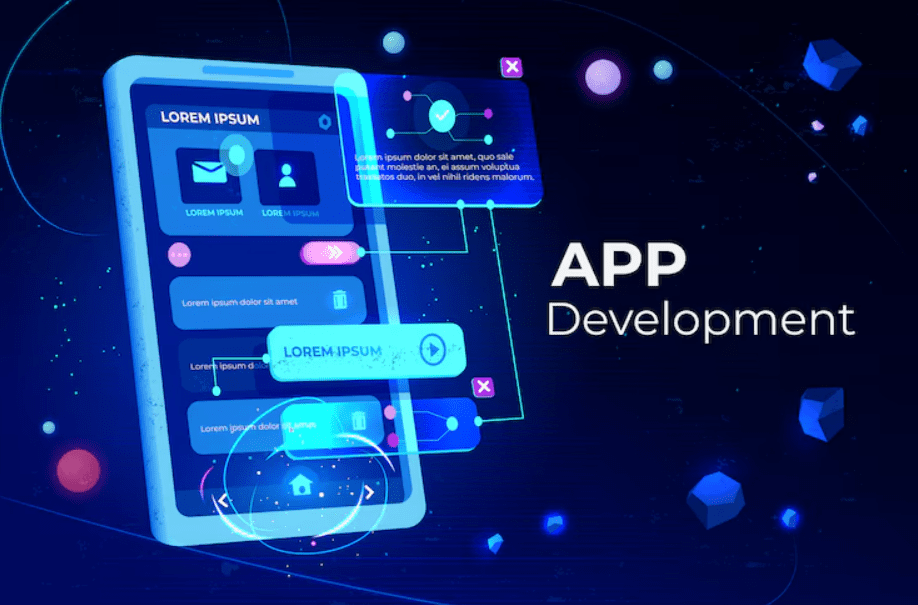Introduction
Artificial Intelligence (AI) quickly changes how we use mobile and web applications. From intelligent recommendations on shopping websites to voice assistants in our phones, AI is becoming a key part of how we interact with technology. AI-driven apps are not just a nice-to-have feature—we are setting a new standard.
Why is this shift taking place? Because users expect apps to be modern, fast, and tailor-made to their needs. AI helps developers meet these expectations by allowing apps to learn from customers and make choices without human input. This is why AI will shape the future of mobile and web applications.
Several trends are making this possible: better systems learning models, voice recognition, photo processing, and increased AI-powered equipment in sectors like healthcare, finance, and e-commerce.
Evolution of AI in Mobile and Web Applications
AI was first used in basic forms like search filters and voice commands. Over time, its use has become more complex, with features like face recognition, fraud detection, and emotional analysis.
Today, AI is a core part of many apps. For example, Netflix uses AI to suggest shows based on your viewing habits. Siri and Alexa are advancing medical diagnoses through AI applications in healthcare. Apps like FaceApp and Lensa edit photos using AI-driven filters.
These apps don’t just perform tasks—we learn, adapt, and give users a smarter experience.
Key AI Technologies Driving Innovation
Several core Artificial Intelligence Technologies are behind this shift:
- Machine Learning & Deep Learning: These help apps learn from data and make predictions. Whether it’s showing the right product or guessing what a user wants next, machine learning is the brain behind it.
- Natural Language Processing (NLP): This allows apps to understand and reply to human language. Chatbots, translation equipment, and digital assistants depend closely on NLP.
- Computer Vision & Image Recognition: Apps use this to understand images and videos. This tech is becoming more common, from tagging friends on Facebook to scanning documents.
- AI-powered Chatbots & Virtual Assistants: These offer instant help, answer questions, and even book services without needing a human agent.
AI in Mobile Applications
Mobile apps have become smarter thanks to AI. Here’s how:
- Personalisation: Apps can now adjust content based on a user’s behaviour. For example, Spotify suggests songs based on your taste, whilst fitness apps give health suggestions based on your daily activity.
- Security and Fraud Detection: Many banking and shopping apps use AI to spot unusual activity and prevent fraud. Face popularity and fingerprint scans are additional uses of AI for safe logins.
- Photography and Video Editing: AI enables mobile apps like Snapseed and Instagram to improve images automatically, do away with undesirable items, or apply filters that react to photo content.
- Mobile Gaming and Entertainment: Games use AI to create extra-smart opponents and adapt gameplay based on your skill level, making them more fun and engaging.
AI in Web Applications
Web apps are also changing, thanks to AI:
- User Interfaces (UI/UX): AI helps design more innovative interfaces responding to user behaviour. For instance, websites adjust layout and colour themes depending on user preferences.
- Recommendation Systems: Shopping, streaming, and news apps use AI to show what customers can enjoy or buy. This is one of the most unusual uses of AI in web development.
- Web Accessibility and Automation: AI tools can help visually impaired users read content aloud or help fill out forms. It can also automate testing and maintenance, saving developers time.
- Cybersecurity: AI watches for threats in real-time and reacts faster than human security teams. It can block unusual behaviour and alert admins before damage is done.
Challenges and Ethical Considerations
As useful as AI is, it brings some concerns:
- Data Privacy: AI need a lot of data to work correctly. This raises questions on how consumer records are collected, stored, and used.
- Bias and Fairness: If AI is trained on biased data, it may mistreat users. For example, job or loan approval apps could show bias if not properly checked.
- Security Risks: AI systems can be targets for hackers. If someone breaks into an AI system, we might change how it makes decisions or use it to steal personal information.
Future Trends and Predictions
AI will shape the future of industries like healthcare, finance, and online shopping:
- Healthcare: AI Applications in Healthcare can help detect diseases early, support virtual consultations, and manage patient data. Health Care App Development focuses more on AI for faster diagnosis and better treatment plans.
- Finance: Apps will use AI to help with budgeting, fraud alerts, and personal finance advice.
- E-commerce: Expect more personalised experiences, innovative chatbots, and faster customer support.
- Progressive Web Apps (PWAs): AI will make PWAs more powerful by helping them work offline, sync better, and provide instant support through virtual agents.
- No-code Development: More businesses can build apps without writing code as AI improves. AI tools can help with design, testing, and even writing content.
Conclusion
AI is not a futuristic idea—it’s already a key part of the apps we use each day. From extra-intelligent mobile cameras to chatbots that help with customer service, AI is making apps more useful, responsive, and personal.
The future of mobile and web development lies in how well we use artificial intelligence to solve real problems. Whether helping a doctor diagnose a condition or giving better shopping suggestions, AI is here to stay.
We at Markitech are excited to be at the forefront of AI development, helping companies use AI to offer creative, approachable solutions.





